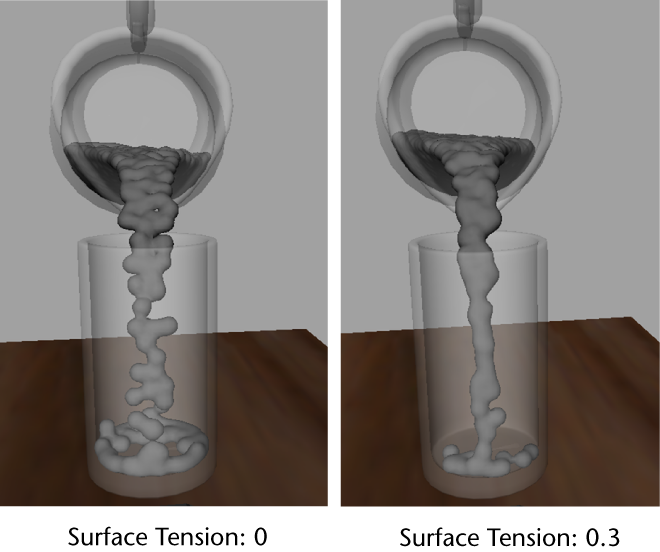An important characteristic of liquids is surface tension. Surface tension is the attractive force between the molecules of liquids, and is most noticeable in phenomena such as the formation of water beads or liquid droplets on surfaces. You can use the Surface Tension attribute to add realistic surface tension to your liquid simulation.
The Surface Tension attribute adds an attractive force between nParticles which keeps them together. The effect of Surface Tension is most visible in liquid simulations after the nParticles object is converted to an output mesh.

To cache your simulation, follow the steps in Cache your nParticle simulation. You can replace your existing nCache by selecting nCache> Replace Cache instead of nCache > Create New Cache.
The mesh is noticeably more uniform, and looks more like a flowing liquid.

 Except where otherwise noted, this work is licensed under a Creative Commons Attribution-NonCommercial-ShareAlike 3.0 Unported License
Except where otherwise noted, this work is licensed under a Creative Commons Attribution-NonCommercial-ShareAlike 3.0 Unported License